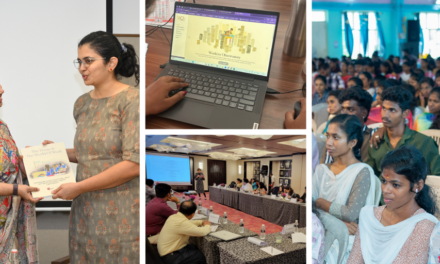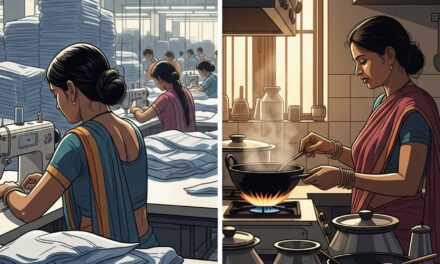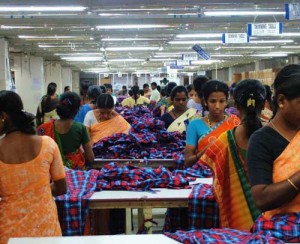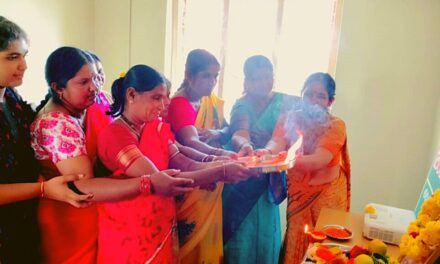A Glance Into The Lives Of Workers With Bite-Sized Stories From Factories, Homes & Communities. Shoe Factory Workers In Ambur Share How They Are Coping With Unbearable Summer Heat In Factories. Meanwhile Several Garment Workers In Bengaluru Report Facing Penalties For Taking Leave. Also Read How A Team Of Garment Workers Creatively Brainstormed Solutions To Common Occupational Health And Workplace Issues At A Workshop.
Worker-Centric Research
Unbearable Heat At Ambur Shoe Factories: Cividep’s Ambur team recently conducted a phone survey with 30 workers from 15 shoe factories, to understand the issues they face due to extreme heat during the summer months.
They complained of the intense heat within factories, that is made worse by iron sheet roofs, scorching machines, and inadequate ventilation. The water available from taps is also too hot. Workers described feeling dehydrated, and having to buy ice boxes and juice packs for themselves. They also resort to creative cooling methods like covering water bottles with wet cloth.
While some factories have provided additional fans and buttermilk, the measures are insufficient. With 10 workers sharing one fan, the relief is minimal. The situation highlights the urgent need for effective heat management strategies in factories, in the face of the increasing impacts of climate change.
Worker Support
Garment Workers Face Job Insecurity Over Leave: Recent incidents highlight the precarious nature of garment factory jobs. Three workers from different Bangalore factories faced retaliation after taking leave.
Anuradha, employed for four years at a local factory, was denied re-entry after a week-long absence without any notice being served to her. Mamata, with 4.5 years of service, faced a similar situation following a four-day bereavement leave after her father’s passing. Both women, supported by Munnade Social Organisation (a worker support organisation and Cividep’s project partner), successfully challenged their dismissals and were reinstated.
In another case, migrant worker Mohan from Jharkhand was terminated from his job at a local export garment factory after a 20-day having gone to his hometown to recover from health ailments. Garment Labour Union (a garment worker collective) is currently intervening.
These incidents underscore the precarious nature of jobs even though most workers in Bangalore’s garment industry are hired as permanent employees. (Names of workers have been changed to protect privacy)
Worker Education
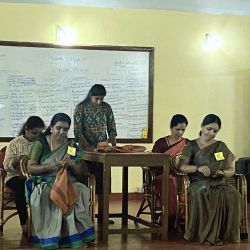 Uncovering Workplace Challenges, Creatively: A recent Cividep workshop, supported by the MAP project, empowered garment workers to address critical health and workplace issues through interactive skits and discussions. Participants (seen in pic) delved into the complexities of their working lives, identifying key areas of concern.
Uncovering Workplace Challenges, Creatively: A recent Cividep workshop, supported by the MAP project, empowered garment workers to address critical health and workplace issues through interactive skits and discussions. Participants (seen in pic) delved into the complexities of their working lives, identifying key areas of concern.
Reproductive health emerged as a central theme, with workers highlighting the challenges posed by restricted toilet access, leading to urinary tract infections. The lack of hygienic menstrual products, often substituted with unclean cloth, further compounded the issue. The group proposed solutions such as menstrual leave, improved sanitation facilities, and the provision of free sanitary napkins.
Musculoskeletal problems, including back, knee, and shoulder pain, were widely reported, linked to prolonged sedentary work. Participants suggested incorporating regular breaks for stretching and walking, as well as reducing production targets to alleviate physical strain.
Mental health was also a focus, with workers expressing feelings of stress, depression, and burnout due to excessive workload and harassment. To address this, they emphasised the importance of open communication between workers and management, suggesting counseling and stress management programs.
(Updates: Gokulavasan P., Elamathi S., Soniya B., Kohila Senbagam, Preethi Gowda, Kaveri M.T)

